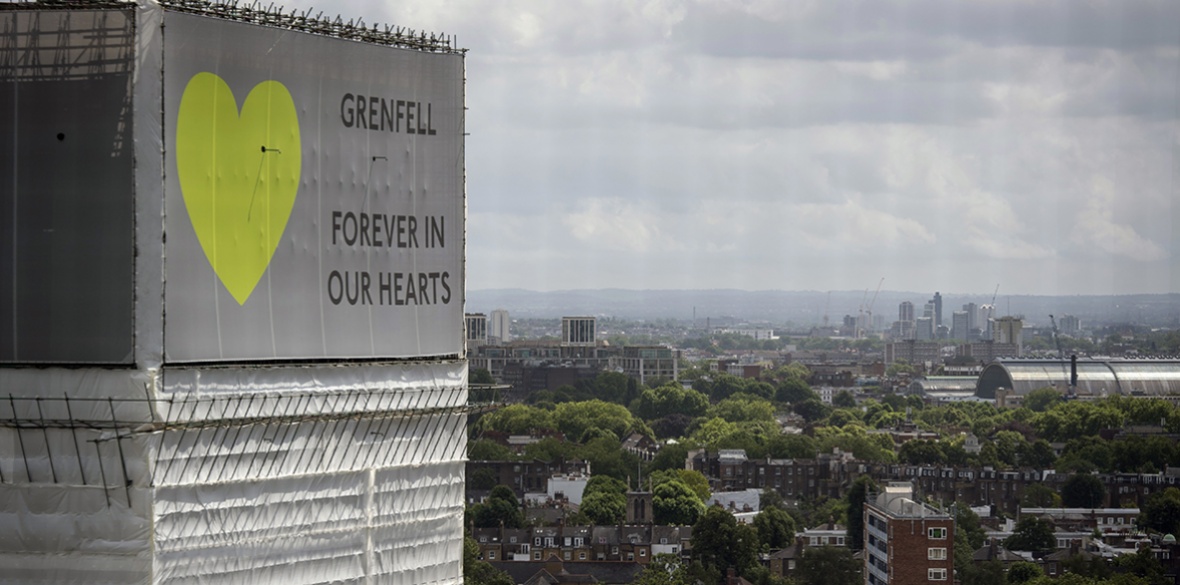TODAY is the fifth anniversary of the Grenfell Tower atrocity, when 72 residents of the 24-storey high-rise block in North Kensington, London, perished in a blazing inferno.
No doubt we will witness the hand-wringing of politicians pledging to do all in their power to ensure that this kind of tragedy “will never happen again” because “the lessons have been learned.”
Many of those lessons may have been learned — but they haven’t been applied. Although extensive remediation work has been carried out on hundreds of Grenfell-type apartment blocks, much remains to be done.
Thousands of old high-rise buildings continue to exist clad with dangerously combustible materials and without inadequate fire safety arrangements.
None are protected by the one cladding system found safe by the independent review of building regulations and fire safety led by Dame Judith Hackitt.
While property builders and developers have pledged to pay £5 billion towards the cost of recladding Britain’s dangerous residential properties, many tenants and leaseholders are also being pressed to contribute.
Yet the legal responsibility for funding this near-Sisyphian task falls on the freehold owners of these buildings. Central and local government have a moral responsibility, too, to ensure that those whose lives have been put in danger by shoddy work practices and negligent regulation are not compelled to cough up.
The initial report of the Grenfell Tower inquiry led by Sir Martin Moore-Bick has already turned up shocking evidence of how the fire started and why it had such a devastating impact on the lives of the dead, the injured and the survivors.
Certainly, blaming the catastrophe on an overheating fridge-freezer won’t do. A similar fault in some other household utility would most likely have had similar effects.
Nor was it fair for Moore-Bick’s first report to offload some of the blame on the firefighters whose courage and assistance have been highly praised by so many of those who escaped from the firestorm.
Any inadequacies and mistakes by fire brigade staff who had not been adequately prepared for dealing with emergencies in a badly designed, unsafe and dangerously refurbished high-rise apartment block should be laid wholly at the door of London fire service chiefs.
Nevertheless, the two inquiries so far have exposed the parts played by developers, suppliers and the Tory-run Kensington and Chelsea Borough Council and its tenant management organisation in preparing the ground for the disaster of June 14 2017.
Safety standards were sacrificed to petty cost-cutting when the council hired private contractors to refurbish Grenfell Tower shortly before the fire. Supervisory procedures were short-circuited and materials known to be unsafe and unsuitable were used.
Yet, five years on, not a single developer, contractor or public official has been prosecuted, let alone convicted.
The Metropolitan Police are still investigating, no doubt awaiting the findings of the second phase of Moore-Bick’s official inquiry.
Delayed by the Covid crisis, it will be delving deeper into the crucial issues of cladding, insulation, law enforcement and the response of the fire service.
Of one thing we can be sure: it will not draw the conclusion that explains why a massacre of the kind that took place in the early hours of June 14, five years ago, can occur.
We live in a grossly unequal society that does not value the lives of working-class people. Everything that happened in Grenfell Tower flows from this reality.
Several hundred low-paid, unemployed or retired workers and their families were condemned to live in a fire-trap, as hundreds of thousands still do today.
As the Fire Brigades Union shows in its pamphlet, The Grenfell Tower Fire: A Crime Caused by Profit and Deregulation (available online), this particular road to hell began with the shift from low-rise social and council housing in the 1950s to high-rise residential blocks built or managed by the private sector from the early 1960s onwards.
Those who profit from property development and their sponsored politicians and public officials live elsewhere, in luxurious safety.










